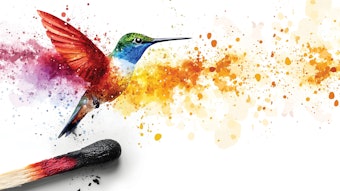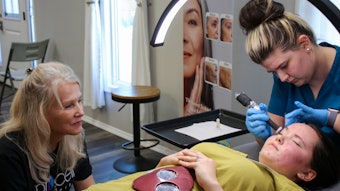
In the serene world of spas, where relaxation and tranquility are the order of the day, one might not immediately associate the industry with high-stress situations. However, anyone working in the spa industry knows that unexpected challenges can arise, demanding quick thinking and adaptability. Learning to pivot in high-stress situations is a valuable skill that can make the difference between chaos and calm in the spa environment.
Tranquility and relaxation are paramount in the spa industry, unexpected high-stress situations can disrupt the harmonious flow of any business. Learning to pivot effectively in such circumstances is not just a skill; it's an art. This article explores the challenges faced by spa professionals in high-stress situations and delves into the strategies they can adopt to maintain a peaceful and seamless experience for both clients and staff.
Before we delve into the nuances of pivoting in high-stress situations, it's essential to understand the unique landscape of the spa industry. With its emphasis on wellness, hospitality, and customer satisfaction, the spa industry thrives on creating an oasis of calm amidst the chaos of everyday life. However, unforeseen challenges such as staffing issues, equipment malfunctions, or sudden policy changes can disrupt this carefully curated atmosphere.
High-stress situations in the spa industry can arise from various sources including external factors like economic downturns, public health crises, or internal challenges like unexpected staff shortages or technical glitches. Pivoting becomes essential to adapt to these changes and maintain the quality of service that clients expect from a spa experience.
The first step in navigating high-stress situations is to anticipate potential challenges. Having a contingency plan in place can help spa professionals respond swiftly and effectively. Regular training sessions on emergency procedures and role-playing scenarios can better prepare staff for unexpected events.
Cultivate a Resilient Mindset
High-stress situations can be mentally and emotionally taxing. Spa professionals must cultivate a resilient mindset to stay focused and composed during crises. Techniques such as mindfulness, meditation, and stress management workshops can be incorporated into regular training programs to help staff build mental resilience.
Effective Communication is Key
In the spa industry, where teamwork is essential, effective communication is paramount. During high-stress situations, clear and concise communication becomes even more critical. Establishing a robust communication protocol, and practicing it regularly can ensure that everyone is on the same page when the pressure is on.
Flexibility in Service Offerings
The spa industry is known for its diverse range of services and flexibility is key to success. During high-stress situations, being open to modifying or adjusting service offerings can help meet client needs while maintaining a positive experience. This may involve offering alternative treatments, extending hours, or accommodating last-minute requests.
Related: Talking Anti-Stress in the Spa
Cross-Training Staff
Cross-training staff in various roles within the spa can be a game-changer in high-stress situations. When unexpected challenges arise, having a team that can seamlessly adapt to different responsibilities ensures that essential services continue without disruption. Cross-training also fosters a sense of unity and shared responsibility among spa professionals.
Implementing Technology Solutions
Embracing technology can significantly contribute to navigating high-stress situations. Implementing booking systems, communication apps, and automated processes can streamline operations and reduce the risk of human error. Additionally, technology can facilitate quick communication with clients regarding any changes or disruptions to their appointments.
Post-Incident Analysis and Learning
After navigating a high-stress situation, it's crucial to conduct a thorough post-incident analysis. This involves assessing what worked well, what could be improved, and identifying any gaps in preparedness. Learning from each experience ensures that the spa team continues to refine its strategies and remains better equipped for future challenges.
Prioritize Self-Care for Staff
In an industry centered around well-being, it's essential to prioritize the well-being of spa professionals themselves. Encouraging self-care practices, providing support services, and creating a positive work environment contribute to staff resilience. A team that feels supported is better equipped to handle stress and respond effectively to challenging situations.
In life as is in business the unexpected can happen at any moment, learning to pivot in high-stress situations is a vital skill. By anticipating challenges, fostering a resilient mindset, emphasizing effective communication, and implementing strategic measures such as cross-training and technology solutions, spa professionals can navigate turbulent waters with grace and ensure that the serenity of the spa experience is maintained, even in the face of adversity.
In order to foster change and growth it is important to deal with your reality- not what you imagine things to be. At times we struggle longer than necessary because we are holding on tightly to systems, an idea, a job, business or person because we want to see it become what we imagined it had the potential to be. This can cause unnecessary or prolonged suffering. Change is difficult, especially when it feels outside of our control. When in fact, getting comfortable with change is what will allow us to more seamlessly adapt when necessary in order to create more ease in our business and in our lives.
At times an organization needs to simultaneously function at a capacity where plan A is being executed, while plan B is being initiated and a potential for plan C is being established. This can be viewed by some as giving up on plan A. When in fact this process is what I consider parallel progress. This strategy builds multiple avenues of prospective outcomes, whilst increasing the probability of success.
With many years of experience it can take less time and effort to shift quickly. Naturally when an individual or a company has experienced a wide variety of scenarios and made a certain amount of mistakes, while learned from those mistakes, it can become second nature to draw upon previous life experience and adjust accordingly. With both an acceptance and a knowing that mistakes are not only inevitable, but also a beneficial and necessary part of growth the path to success becomes attainable.
Wisdom is earned over many years. For the individual and the organization that hasn’t had a long history of experience it is always wise to consult other professionals to gain a wider prospective. In fact, even those with many years of experience can benefit greatly from continually attaining insight and knowledge from others. It is through this broad-minded mentality and a willingness that we can forge through uncharted territory.
Leah Simon-Clarke is a licensed aesthetician and consultant with 24 years of experience in the industry. Her success has been driven by honing her skills in customer service, service innovation, marketing and public relations. Find Simon- Clarke through Instagram @LeahSimonClarke or Linkedin by name.










